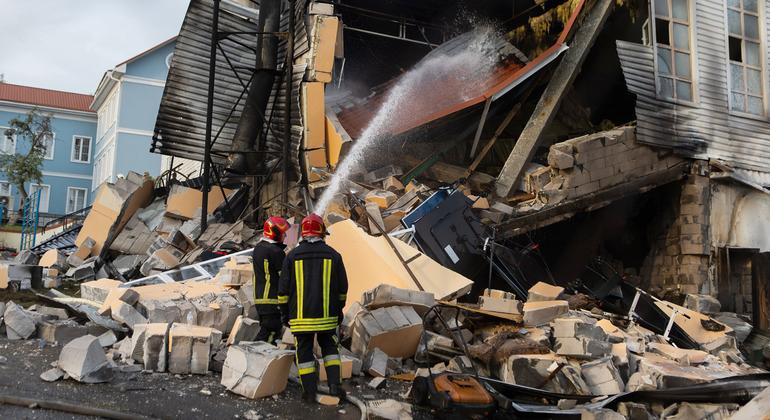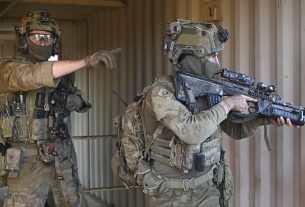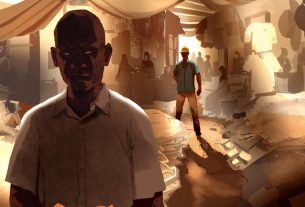Covering the period of September to November 2024, the report describes intensified Russian attacks on populated areas, deliberate strikes on energy infrastructure, and efforts to restrict fundamental rights.
“Behind each of the facts and figures in this report are stories of loss and human suffering, showing the devastating impact of the war across Ukraine,” said Danielle Bell, Head of the HRMMU.
“September marked the highest monthly toll since July 2022, with my team documenting 574 civilian deaths and 3,032 injured over the three months,” she gravely noted.
Rising civilian casualties and suffering
93 per cent of the casualties recorded occurred in Government-controlled areas, particularly in Donetsk, Kharkiv, and Kherson, where military activity remains intense.
Modified aerial bombs, which can now glide tens of kilometres into large cities like Kharkiv and Sumy before exploding, have exacerbated the devastation.
The bombardment of Zaporizhzhia on 7 November alone killed nine civilians and injured 42, while short-range drones killed 67 and injured 528.
Russian forces have also resumed large-scale aerial attacks on Ukraine’s critical energy infrastructure.
On 17 and 28 November, strikes further diminished Ukraine’s energy capacity as winter approached, disrupting electricity, water, heating, and transportation systems in multiple regions.
Continued ill-treatment of POWS
The report details continued executions, torture, and ill-treatment of POWs.
Since August 2024, there has been a notable increase in credible allegations of executions of Ukrainian POWs, with at least 62 victims in 19 incidents.
Independent verification of these killings has confirmed the deaths of 15 Ukrainian POWs.
Interviews with 42 recently released POWs, including 11 women, revealed that all of them had experienced torture, including beatings, being subjected to electric shock, and prolonged solitary confinement.
Sexual violence, against both women and men, was also prevalent.
On the other hand, while the report acknowledges mistreatment of Russian POWs, particularly during their initial detention by Ukrainian authorities, it is noted that these instances appeared more isolated compared to the widespread torture of Ukrainian prisoners.
Russia’s strengthened control over occupied territories
Furthermore, Russia has imposed its laws over occupied regions, in violation of its obligations under international humanitarian law, including the requirement for residents to obtain Russian citizenship to keep their property rights.
Homes that were forcibly abandoned have been confiscated, making it nearly impossible for displaced residents to return.
The Russian authorities have also introduced a new cultural policy aimed at “integrating” children from occupied territories into Russian society.
This policy includes mandatory military training for children, including lessons on grenades, small arms, and anti-tank grenade launchers.
Religious freedom has also been restricted by both governments.
In Crimea, Jehovah’s Witnesses face persecution under Russia’s anti-extremism laws, while a Muslim group has been disbanded for alleged “extremist” activities.
On the other hand, new legal provisions regarding religious organizations entered into force in territory controlled by the Government of Ukraine, limiting freedom of belief and religious expression.
The path forward
As the war continues to devastate Ukraine, the report calls for the critical upholding of international humanitarian and human rights law.
“The armed attack on Ukraine has continued unabated for almost three years. Amidst so much suffering, it is imperative to intensify efforts to uphold international humanitarian and human rights law,” said Ms. Bell.
As winter sets in and the war shows no end in sight, the urgency of these efforts becomes even greater.



